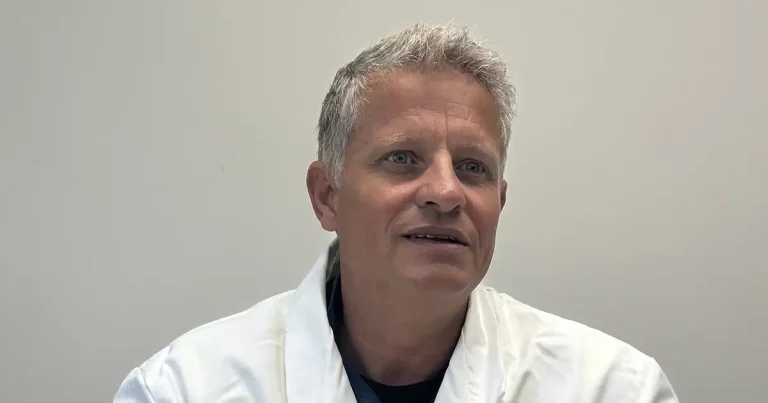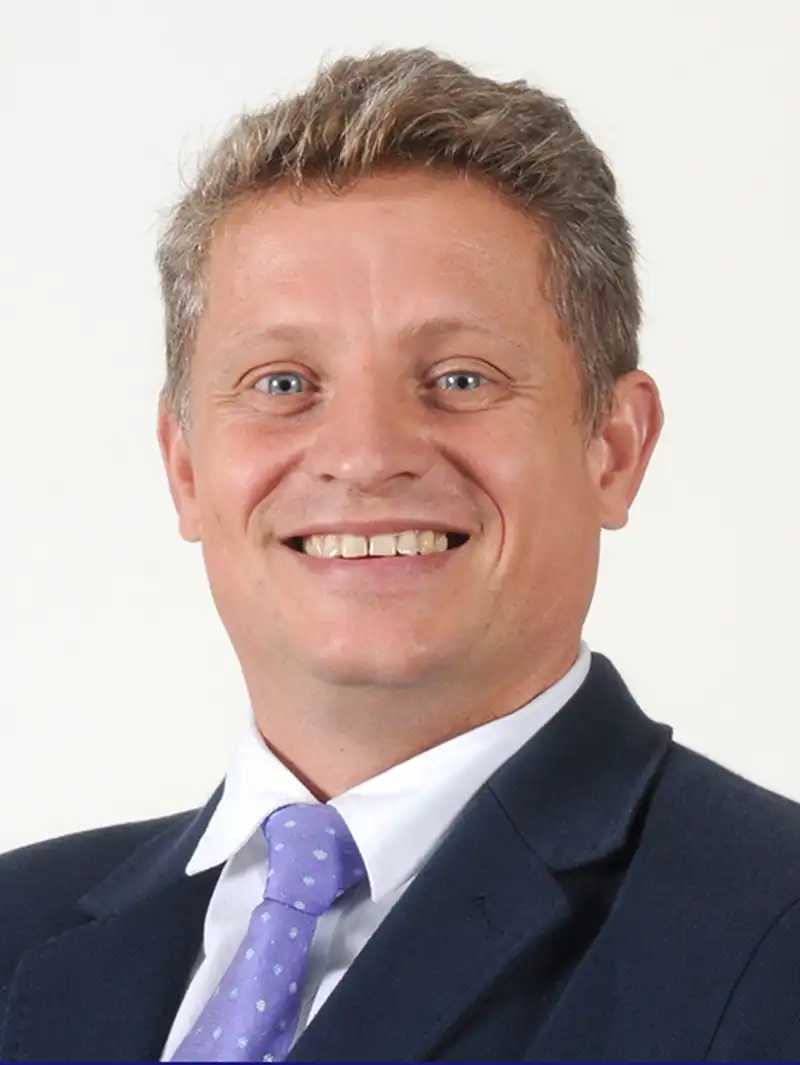9 Sept 2025
Sorin Pescariu explains his role, career route decisions and the training required to lead a team of official veterinary surgeons working together to protect the UK's food chain.

Sorin Pescariu, lead veterinary surgeon at Ashford Port Health, Sevington border control post
Sorin Pescariu (pictured), lead official veterinary surgeon at Ashford Port Health, Sevington border control post, is responsible for leading a dedicated team of 22 official veterinary surgeons – all working together to protect the UK’s food chain. He explains his role, career route decisions and the training required.
A I began my journey with Ashford Port Health (APH) in April 2021. My initial task was to initiate and implement import controls and sanitary and phytosanitary checks for consignments of Products of Animal Origin (POAO) coming from the EU. During a nine-month period, I was sub-contracted by the APHA to handle duties related to the National Emergency Avian Influenza Virus Outbreak. This involved reporting cases, disease control surveillance, conducting veterinary risk assessments, post-vet audits, with a secondment to the APHA Ukrainian Animal Importation Scheme.
I returned to APH in June 2023 to directly involve myself in implementing the new Border Target Operating Model programme. This was the UK’s new approach to managing imports into Great Britain. My role involved recruiting official veterinarian surgeons (OVS), and developing processes and policies, all to ensure readiness for the end of April 2024 when Sevington BCP went live.
A To be a portal OVS (POVS), you must possess a degree in veterinary medicine that is recognised and transferable in the UK, along with full registration as a member of the RCVS.
Specifically, to work in a BCP as an OVS, you need to be a member of the RCVS and possess the APHA Authorisation Product Exports (OCQ [V] – PX) qualification, achieved through training with Improve International. Desirable qualifications include previous experience in meat hygiene, red meat and white meat OVS qualifications, and any relevant food, health and safety postgraduate training.

A To be appointed by the appropriate authority, a POVS authorisation must be issued. This authorisation grants the power to perform or make decisions at the BCP under Regulation 12 of the TARP Regulations 2011. This requires portal training, which includes specific in-house training in port health fundamentals covering all areas of the job description.
Additionally, there are online Food Standards Agency/Defra training courses arranged by competent authorities that must be completed as per current legislation.
A It just felt an incredible opportunity, and not one that many vets get to experience. It has led to more than 26 years of work dedicated to public health and food safety across four different countries, including Romania, New Zealand, Australia and the UK, where I’ve been based for the past seven years. These fields have always captivated me, and I am driven by the responsibility to ensure our country is well protected through stringent biosecurity measures.
My current role as a POVS provides an exceptional platform to apply my expertise in these areas.
A A typical day for an OVS involves undertaking a range of statutory duties to safeguard public health and animal health while protecting the UK border. Our main duties include carrying out documentary, identity and physical checks on POAO, including animal by-products on various commodities, to ensure only safe products enter the food chain.
We also perform physical checks, including sampling programmes under the National Monitoring Plan; manage rejections, detentions and destructions of non-compliant consignments; and undertake enforcement actions. That includes issuing legal notices and giving options to traders/importers on re-export, destruction, remedial action or downgrade of non-compliant consignments.
We also respond to complaints and queries as per current legislation, train new Port Health staff, engage with other authorities such as inland authorities, Defra, Border Force and HMRC, and deal with illegal consignments. Tasks are distributed to vets on duty based on a live platform called OVS tasks, which ensures efficiency and coverage of all areas of responsibility for each shift.
A Our work helps keep the public safe by protecting public health and animal health at the border, and ensuring biosecurity controls are in place. The primary role of an OVS is to ensure the effectiveness of official controls at the BCP and the implementation of legislative requirements to safeguard public and animal health.
A They significantly contribute to my role. The portal training and courses I have completed, coupled with my extensive experience, have developed my confidence and ensured accuracy in decision making and implementation.
A In the past 20 years working in the food/meat industry, I have developed a passion for public and animal health, covering areas such as veterinary work, meat hygiene and inspection, food quality and food safety.
This was elevated when I joined the import control branch, considering the complexity and level of responsibilities involved. The OVS role requires certain management skills, which I enjoy taking on. Since February 2024, I have been appointed to my new role as lead OVS.
One of my greatest satisfactions was in the recruitment project, building a team of OVSs to staff the BCP despite the national shortage of vets. This project was successful and positively impacted carrying out official controls for products of animal origin, maintaining compliance, and safeguarding the health and safety of animal-origin imports.
Additionally, I have been involved in developing and implementing internal BCP processes and procedures, building relationships with POVSs at other BCPs in Great Britain and the EU, and arranging visits to observe best practices within BCPs.
A My tip is to ensure 24-hour pre-notification. It is the importer’s responsibility to complete part 1 of the Common Health Entry Document, enabling prompt notification of incoming import consignments to the relevant BCP. Ensuring pre-notification within the minimum 24-hour timeframe allows the Port Health authority to process declarations and carry out documentary checks in a timely manner, preventing delays due to requested amendments or potential rejections due to inconsistent documentation (for example, Export Health Certificate errors).
To find out more about the work of Ashford Port Health, visit www.ashfordporthealth.gov.uk